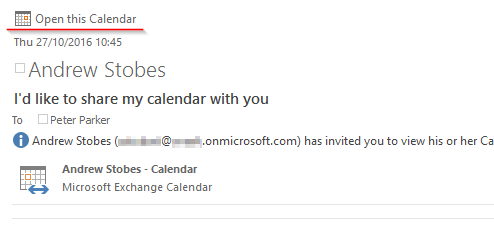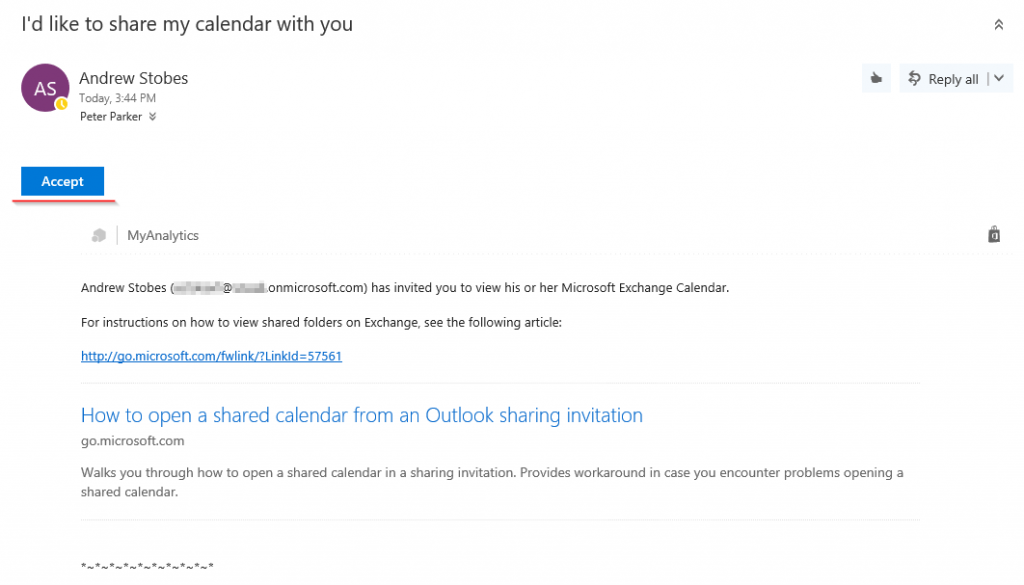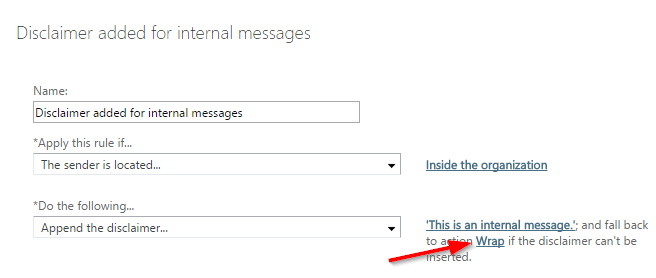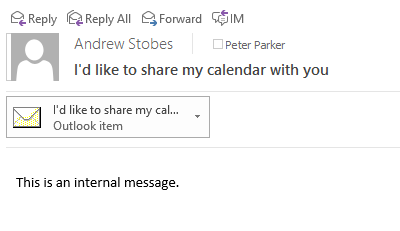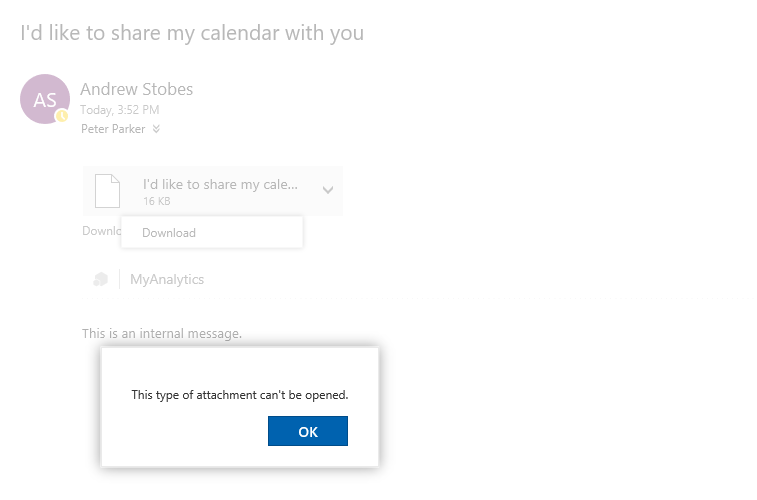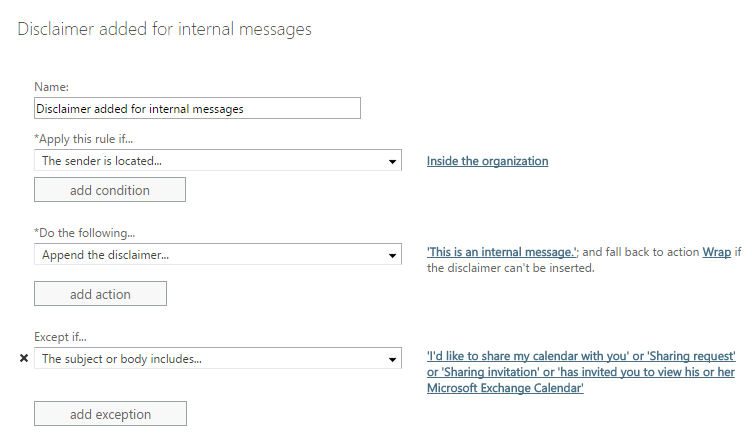Disclaimers and calendar invites
Rather than tease you with a witty, or even humorous opening paragraph, I’m going to instead jump right to the dessert. Because really, who doesn’t love dessert?
As I recently discovered with an organization, adding disclaimers to calendar invite emails can cause problems and confusion for end users. When an individual shares their calendar, we would expect the recipient to the see follow invitation in Outlook.
The recipient simply clicks “Open this Calendar” and magic happens.
In OWA, the received sharing invite would look like this.
The user simply clicks “Accept.”
The problem arises if a transport rule tries to add a disclaimer to this inbound sharing invitation. First, some background. If a transport rule cannot add a disclaimer, the default action it takes is to wrap the message.
This means that the original message will be attached as a .eml file to a new message which will contain the disclaimer.
Here’s what the same calendar invite looks like in the desktop Outlook client after a transport rule has wrapped the message to add a disclaimer.
There’s no “Open this Calendar” button here because the original invite is the attachment. The recipient will need to first open the attached message, and from there they can open the shared calendar. Although this is more clicks, the recipient can still open the shared calendar.
The OWA experience is not so… user friendly. In OWA, the recipient will see the attachment, but unfortunately OWA can’t open .eml files. This can be seen below.
The user could download the .eml file and try to open it from their computer, but they have most likely already called their help desk.
Resolution
The best course of action here is to not add disclaimers to calendar invitation emails. This can easily be done by adding an exception clause to the existing transport rule. The transport rule exception would contain, “Except if… The subject or body includes…”
- has invited you to view his or her Microsoft Exchange Calendar
- Sharing invitation
- Sharing request
- I'd like to share my calendar with you
Here’s how our modified transport rule would look after the above exception was added.
With this in place, the transport rule will no longer trigger on calendar invitation emails, and thus leaving the end user with a positive experience (we hope!).
Comments
- Anonymous
October 28, 2016
Don't forget you also need text from the disclaimer itself added to the exception as well so the disclaimer doesnt keep appending to a message will multiple replies!- Anonymous
November 04, 2016
Thanks Andy, very good point!
- Anonymous
